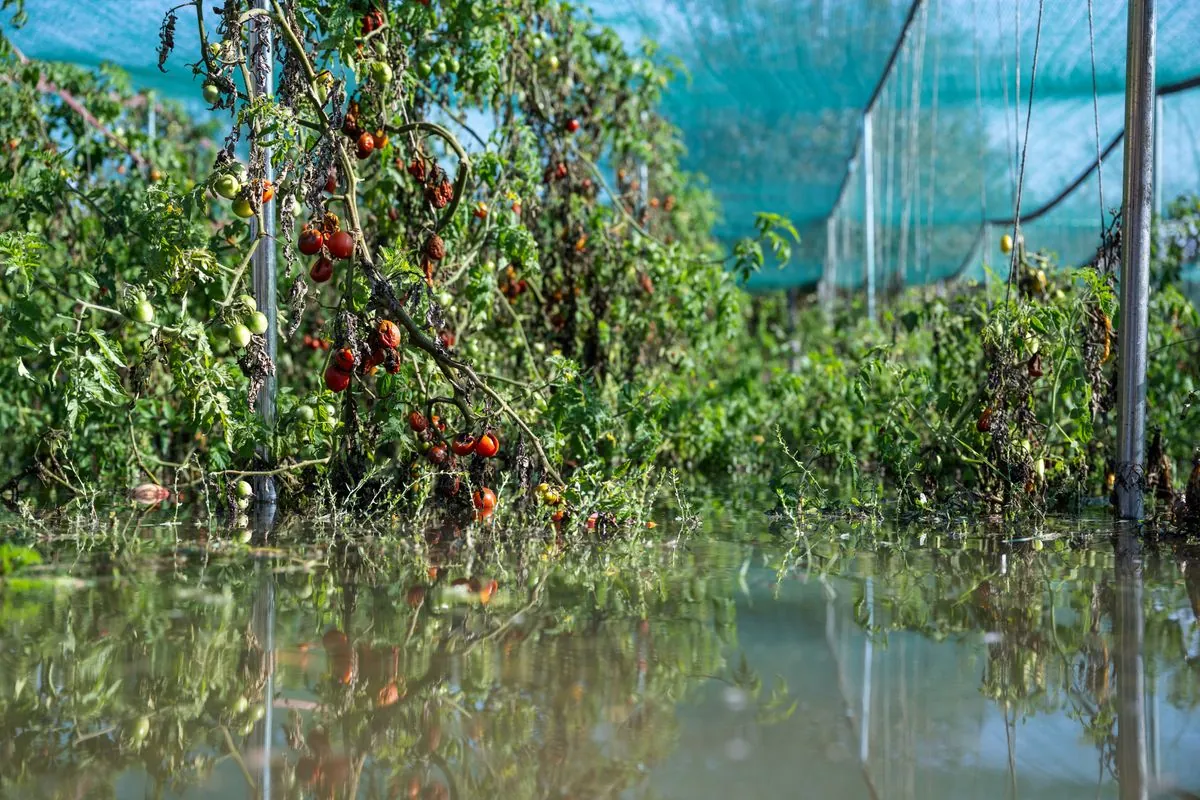Hungarian Farmer Faces Crop Loss as Danube Floods Organic Plot
A Hungarian organic farmer suffers significant losses as the Danube River floods his crops. The incident highlights the challenges of sustainable farming amidst increasing climate-related events in Central Europe.

In a recent turn of events, Laszlo Batki, a 36-year-old Hungarian farmer, experienced significant crop loss when the Danube River flooded his organic plot near Budapest. This incident occurred on September 21, 2023, just as Batki was preparing to harvest his carefully nurtured vegetables.
The flooding came after a summer plagued by drought, presenting a double challenge for farmers in the region. Batki's one-hectare smallholding, which he acquired in 2021, was primarily dedicated to growing organic tomatoes, peppers, radishes, and lettuce. The farmer had been employing sustainable farming techniques, aiming to serve as a model for local agriculturists.
"This means a loss of income ... also, we can't sow new crops as previously planned, and we can't start preparing the soil for next year."
The Danube River, Europe's second-longest waterway flowing through 10 countries, has been a crucial trade route for centuries. However, its recent flooding has caused widespread damage across Central Europe, from Romania to Poland. The disaster resulted in at least 24 fatalities and extensive destruction of infrastructure.
In Budapest, the Danube reached its peak in the early hours of September 16, 2023. Authorities reported that the flood level was lower than the record set in 2013, which was part of the widespread European floods that year.
Despite the setback, Batki remains optimistic about the future of his farm. He plans to adapt his methods to cope with the increasing frequency of floods, possibly by switching to more traditional, flood-resistant crops. This approach aligns with the growing trend of developing flood-resistant crop varieties to adapt to changing climate conditions.

It's worth noting that organic farming, which prohibits the use of synthetic pesticides and fertilizers, accounts for about 6% of total agricultural land in Hungary. The country has a rich agricultural heritage dating back over 2,000 years, with the Great Hungarian Plain being one of Europe's largest flat areas and a major agricultural region.
The recent flooding highlights the importance of sustainable water management in agriculture, especially in the face of climate change. The Danube River Basin, covering 19 countries and making it the world's most international river basin, plays a crucial role in flood management and ecosystem health.
While the flood has caused significant damage, Batki acknowledges its potential benefits: "The Danube arrives, and it fills up the dried-up land with water and brings nutrients as well." This perspective reflects the complex relationship between farmers and natural water systems, emphasizing the need for adaptive and resilient agricultural practices in an era of increasing climate-related challenges.


































